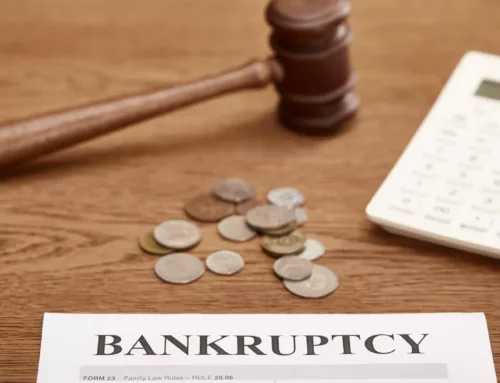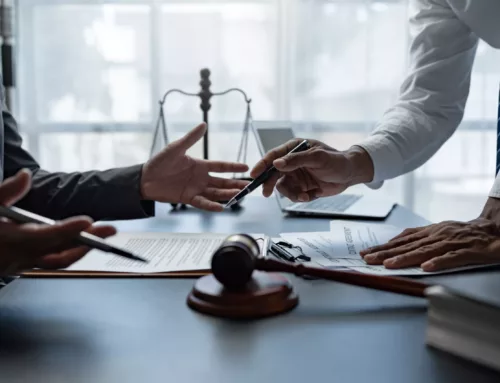Filing for bankruptcy has a lot of potential benefits for individuals who are no longer capable of paying debts. Understanding basic bankruptcy law and knowing the potential advantages of filing bankruptcy is important. Choosing whether to file a bankruptcy petition, deciding on the right timing, and learning how to file is a difficult task to do on your own. To decide if bankruptcy is the right choice for you, you should seek legal help from a trusted Royal Oak bankruptcy lawyer.
While it is true that filing a bankruptcy petition may hurt your finances, experienced Royal Oak bankruptcy attorneys can assist you to get the most out of a successful bankruptcy filing.
What are the benefits of a bankruptcy filing?
- Being protected by the automatic stay
- Eliminating debts through discharge
- Bankruptcy exemptions
- Eventual improvement in credit score
Contact a reliable Royal Oak bankruptcy attorney to know the different benefits of a bankruptcy filing.
-
Being protected by the automatic stay
There are a lot of potential benefits when you file for bankruptcy. If you are considering bankruptcy, once you file your petition, the bankruptcy court will immediately grant an automatic stay. An automatic stay prohibits any collection activity from the creditors. It does not wipe out the debt but it will put a stop to all collection activities before the bankruptcy case is over. It prohibits calls from debt collectors, lawsuits, wage garnishment, foreclosure, and repossession.
If a creditor attempts to demand payment from you even after the bankruptcy court issued an automatic stay, your bankruptcy lawyer may file a contempt of court suit against the creditor. However, an automatic stay does not stop the collection of criminal proceedings, child support, or alimony.
If you have only applied for bankruptcy once in the previous year, you may ask the bankruptcy court for an extension of the first bankruptcy stay. On the other hand, if you applied two or more times in the previous year, your automatic stay will not go into effect until the bankruptcy court issues an order.
-
Eliminating debts through discharge

-
Bankruptcy exemptions
Exemptions can allow you to keep your home after filing for bankruptcy. If you can exempt an asset from being confiscated in a bankruptcy proceeding, you will not have to think about it. These exemptions are crucial in both bankruptcy Chapter 7 and Chapter 13.
-
Eventual improvement in credit score
While fears of a ruined credit rating deter many people from filing a bankruptcy petition (and indeed undergoing the bankruptcy procedure can influence your credit rating for seven to ten years) many individuals can see improvements in their scores months after filing bankruptcy. If a debtor’s debts have been discharged, they will have a fresh start and have a chance to restore their credit.
Timing is crucial when you file for bankruptcy. Filing when you should not or doing so at the wrong time may complicate your financial condition. Filing for bankruptcy too soon may result in an individual losing his asset that he would have been able to retain initially, or forcing them to file to a certain bankruptcy form that is not in their best interest may likewise lead to consequences.
Even if bankruptcy is the best choice for an individual, there may have long-term financial consequences that should be considered before declaring bankruptcy. Consult with experienced Royal Oak bankruptcy attorneys to assist you throughout the bankruptcy process.
What are the potential consequences of filing bankruptcy?
When you apply for bankruptcy, several credit card companies immediately terminate any cards you have. Following your filing, you will certainly receive several offers to apply for unsecured credit cards. These will help you restore your credit score but they usually come with a high interest rate.
Bankruptcy filings may affect your credit score. Bankruptcy Chapter 7 or liquidation bankruptcy remains on a credit report for ten years while Chapter 13 or reorganization bankruptcy stays for seven years. Another potential disadvantage is that getting a mortgage may be difficult. A bankruptcy filing can make it hard to obtain another loan.
You may experience real estate losses when you file for bankruptcy. Exemptions do not always apply to both real estate and personal property. It means that the court will take and sell some of your assets to pay back some creditors. Bankruptcy may also result in the denial of state and federal tax refunds.
When you file for bankruptcy, it cannot eliminate all types of debt. Certain types of debts are not dischargeable. These include child support, alimony, student loan debt, criminal fines, and other debts accrued by fraud. In addition, the stigma associated with jobs and housing may also happen. Any prospective employers will inquire about any bankruptcies, which could jeopardize your prospects.



